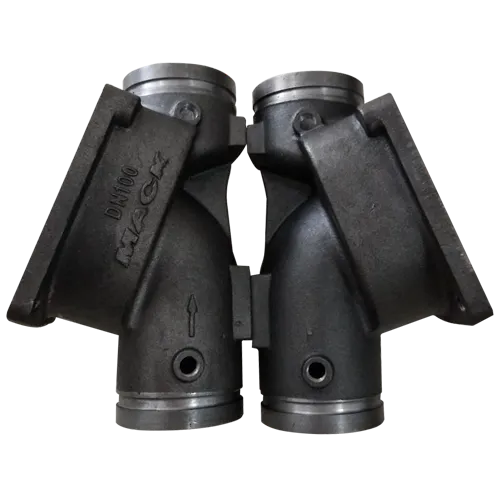Mobile:+86-311-808-126-83
Email:info@ydcastings.com
Innovations in Aluminium Slab Casting Techniques for Enhanced Quality and Efficiency
The Process and Advantages of Aluminium Slab Casting
Aluminium is one of the most versatile and widely used metals in various industries due to its excellent properties, including lightweight, high strength, corrosion resistance, and good thermal and electrical conductivity. One of the critical processes in the production of aluminium products is slab casting, a method that facilitates the creation of large, flat sections of aluminium, known as slabs. This article will explore the slab casting process, its advantages, and its applications in various sectors.
Understanding Aluminium Slab Casting
Aluminium slab casting involves the melting of aluminium alloy and its subsequent solidification into slabs. The process begins with the selection of raw materials, which are typically ingots or scrap aluminium, accompanied by alloying elements to achieve specific properties. The aluminium is melted in a furnace at temperatures exceeding 660 degrees Celsius. Once the molten aluminium reaches the desired temperature, it is poured into a casting mold.
The mold used in slab casting is usually made of steel and is designed to produce slabs of varying thicknesses, typically ranging from 3 to 10 inches. As the molten aluminium fills the mold, it starts to cool and solidify. The cooling rate can be controlled to ensure uniform solidification and to minimize defects such as cracks or inclusions. Once solidified, the slabs are removed from the mold and cut into manageable sizes for further processing.
Advantages of Aluminium Slab Casting
1. Economical Production One of the primary benefits of aluminium slab casting is its cost-effectiveness. The process allows for the production of large quantities of aluminium slabs in a relatively short time. This efficiency reduces manufacturing costs, which can be passed on to consumers in the form of lower prices.
2. Versatility Aluminium slabs produced through casting can be easily machined, rolled, or extruded to create a wide range of products. This versatility makes them suitable for various applications, including automotive parts, packaging materials, construction components, and electrical enclosures.
aluminium slab casting

3. Enhanced Properties The slab casting process allows for precise control over the composition of the aluminium alloy, which can be tailored to meet specific mechanical and physical properties. This customizability makes it possible to produce slabs that exhibit excellent strength-to-weight ratios, improved corrosion resistance, and enhanced thermal conductivity.
4. Reduced Wastage Unlike other aluminium production methods, slab casting generates minimal waste. The process allows for nearly complete utilization of the raw materials, contributing to a more sustainable production cycle. Additionally, any scrap material generated during processing can often be recycled back into the production cycle.
5. Improved Surface Quality The controlled cooling process during slab casting helps achieve smoother surface finishes compared to other casting methods. This quality is critical in applications where surface defects can compromise the performance and aesthetic appeal of the final product.
Applications
Aluminium slabs produced through casting have a wide range of applications across various industries. In the automotive sector, they are used to manufacture components such as chassis members and body panels, where lightweight and strength are paramount. The aerospace industry also benefits from aluminium slabs for aircraft structures, where weight reduction is critical for fuel efficiency and performance.
Additionally, in the construction industry, aluminium slabs are utilized for window frames, roofing systems, and architectural elements, owing to their durability and resistance to environmental factors. The electrical industry employs aluminium slabs for components such as bus bars and transformer housings due to the metal's excellent conductivity.
Conclusion
Aluminium slab casting is an essential process that contributes significantly to the production of high-quality aluminium products. Its economic advantages, versatility, and capacity for producing tailored alloys make it highly valuable in modern manufacturing. As industries increasingly focus on sustainability, the reduced waste and recyclability of aluminium produced through slab casting position it as a preferred choice for a wide range of applications. The future of aluminium slab casting looks promising, with continuous advancements in technology and processes enhancing the efficiency and quality of the products.
-
Why Should You Invest in Superior Pump Castings for Your Equipment?NewsJun.09,2025
-
Unlock Performance Potential with Stainless Impellers and Aluminum End CapsNewsJun.09,2025
-
Revolutionize Your Machinery with Superior Cast Iron and Aluminum ComponentsNewsJun.09,2025
-
Revolutionize Fluid Dynamics with Premium Pump ComponentsNewsJun.09,2025
-
Optimizing Industrial Systems with Essential Valve ComponentsNewsJun.09,2025
-
Elevate Grid Efficiency with High-Precision Power CastingsNewsJun.09,2025











